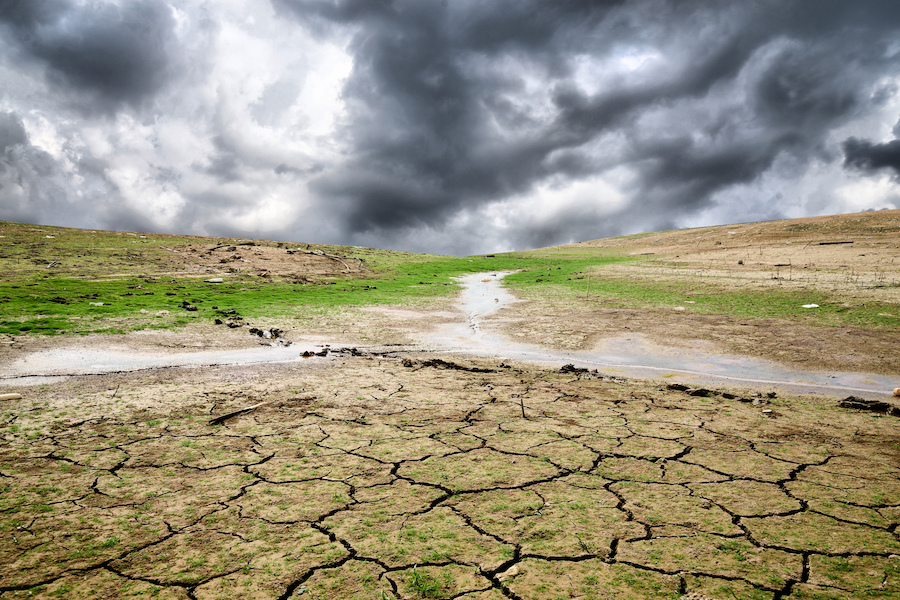This June and July were the hottest months ever recorded. European countries faced record-breaking, life-threatening temperatures during a heatwave in June that was directly followed by an even hotter heatwave in July. Alaska and Siberia both experienced unparalleled heatwaves this summer. As the heatwaves travelled from Europe to Greenland, unprecedented amounts of Arctic ice melted. This year’s fluctuations echo the 2003 heatwave that killed thousands of Europeans but led to improvements in preparation, response, and recovery practices. These extreme weather events still have significant costs for individuals, society, and the environment and should be addressed on a national and global scale.
While the impact of humans on the intensity, frequency, and duration of heatwaves is well understood in the science community, more public awareness, data-gathering, and research are needed to apply this knowledge to policy and practice. It is critical to evaluate the consequences of human-induced climate change and subsequent extreme weather events to protect public health, infrastructure, and the environment.
Hippocrates identified the effect of climate on the spread and severity of epidemic diseases in the fifth century B.C.E., and this concept remains in public health conversations even today. Extreme weather events amplify the spread of disease. Our report Global Climate Change and Extreme Weather Events explores the relationship between global climate change and infectious diseases, highlighting common public health concerns specific to both high-income and low-income countries in a changing climate.
Global climate change and extreme weather events also impact human infrastructure, especially in cities and transportation systems. Numerous transportation systems across Europe were disrupted due to the heatwaves, among them a rail line in the United Kingdom whose passengers were stranded in unair-conditioned train cars. Our report Transportation Resilience: Adaptation to Climate Change stresses that before, during, and after extreme weather events, it is critical to predict and manage risk, minimize disruption, and implement recovery procedures. This begins in the design and construction phase of city and transportation infrastructure.
The Arctic region is especially vulnerable to the impacts of climate change. Before the summer heatwaves travelled from European countries to Greenland, sea ice spread in the Arctic and Antarctic was already at record lows. The new wave of hot air then melted 1 billion tons of Greenland’s ice in one day. Our 2013 report, Abrupt Impacts of Climate Change, classified late-summer sea ice disappearance as a high risk within this century. Animals that are native to this melting environment face significant challenges as the thinning habitat alters their eating, migration and overall life cycles. The existence of Earth’s Arctic ice cover relies on enhanced cooperation across industries, better management and communication of research, and greater investment in research, community awareness, and young researchers.
Extreme heatwaves caused by manmade emissions are increasing in intensity and frequency, devastating both human and natural systems globally. Scientists have discussed the effect of high concentrations of carbon dioxide in the atmosphere since before the turn of the 20th century, but this knowledge is not sufficiently applied to policy. Our publications explore the possible impacts of climate change and provide guidance on navigating these challenges.
Attribution of Extreme Weather Events in the Context of Climate Change
As climate has warmed over recent years, a new pattern of more frequent and more intense weather events has unfolded across the globe. Climate models simulate such changes in extreme events, and some of the reasons for the changes are well …
Abrupt Impacts of Climate Change: Anticipating Surprises
Climate is changing, forced out of the range of the past million years by levels of carbon dioxide and other greenhouse gases not seen in the Earth’s atmosphere for a very, very long time. Lacking action by the world’s nations, it is clear that …
Valuing Climate Damages: Updating Estimation of the Social Cost of Carbon Dioxide
The social cost of carbon (SC-CO2) is an economic metric intended to provide a comprehensive estimate of the net damages – that is, the monetized value of the net impacts, both negative and positive – from the global climate change that results …
Long before the “germ theory” of disease was described, late in the nineteenth century, humans knew that climatic conditions influence the appearance and spread of epidemic diseases. Ancient notions about the effects of weather and climate on …
TRB’s National Cooperative Highway Research Program (NCHRP) Report 750: Strategic Issues Facing Transportation, Volume 2: Climate Change, Extreme Weather Events, and the Highway System: Practitioner’s Guide and Research Report provides …
Transportation Resilience: Adaptation to Climate Change
Transportation Resilience: Adaptation to Climate Change and Extreme Weather Events summarizes a symposium held June 16–17, 2016 in Brussels, Belgium. The fourth annual symposium promotes common understanding, efficiencies, and trans-Atlantic …
Linkages Between Arctic Warming and Mid-Latitude Weather Patterns: Summary of a Workshop
The Arctic has been undergoing significant changes in recent years. Average temperatures are rising twice as fast as they are elsewhere in the world. The extent and thickness of sea ice is rapidly declining. Such changes may have an impact on …
The Arctic in the Anthropocene: Emerging Research Questions
Once ice-bound, difficult to access, and largely ignored by the rest of the world, the Arctic is now front and center in the midst of many important questions facing the world today. Our daily weather, what we eat, and coastal flooding are all …








